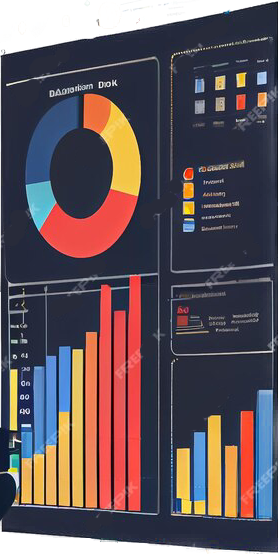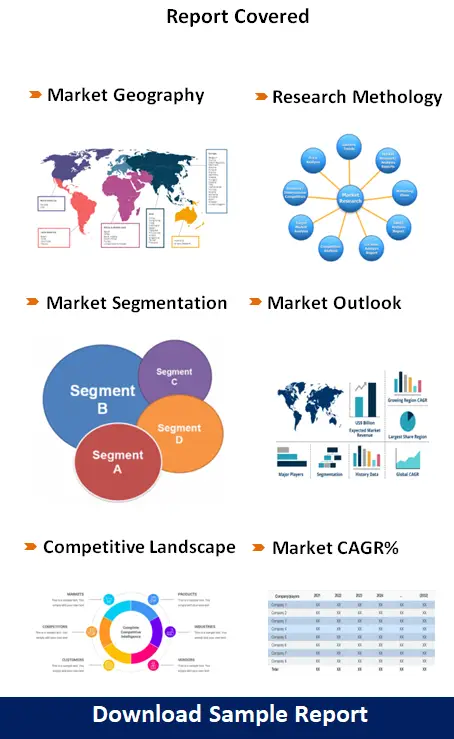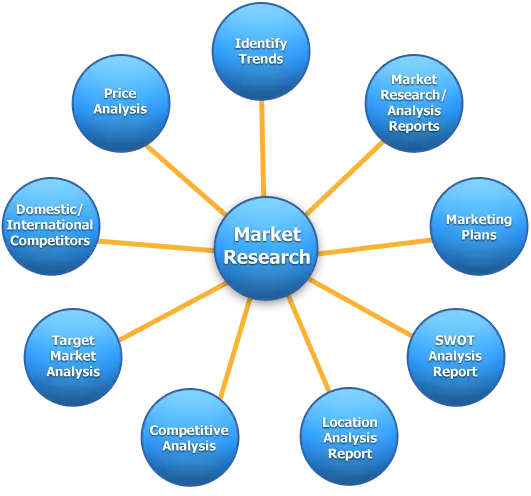Membrane Electrode Assemblies (MEA) Market Growth CAGR Overview
According to research by Infinitive Data Research, the global Membrane Electrode Assemblies (MEA) Market size was valued at USD 584 Mln (Million) in 2024 and is Calculated to reach USD 984 Mln (Million) by the end of 2032, growing at an anticipated compound annual growth rate (CAGR) of 10.3% during the forecast period 2024 to 2032. This projected growth is driven by its increasing adoption across Telecommunications industries such as Hydrogen Fuel Cells, Methanol Fuel Cells, OthersThe growth in the MEA market is driven by the rapid expansion of clean energy initiatives worldwide. As nations shift their focus from fossil fuels to renewable energy sources, the demand for efficient fuel cell technologies that utilize advanced membrane electrode assemblies has surged. This shift is supported by evolving regulatory frameworks that incentivize low-emission technologies, thereby creating a favorable environment for market expansion.
Technological innovations in catalyst materials and membrane designs have led to enhanced performance and durability of MEAs. These breakthroughs have not only improved the efficiency of hydrogen fuel cells but have also reduced manufacturing costs, making fuel cell applications more competitive compared to traditional energy solutions. The continuous improvement in these technologies is a major contributor to the market’s dynamic evolution.
Strategic partnerships and collaborations among industry players, research institutions, and governmental agencies are fueling further advancements in MEA technology. Such collaborations are aimed at optimizing production processes, enhancing material properties, and integrating innovative designs into commercial fuel cell systems. This cooperative approach has accelerated product development cycles and broadened the range of applications in both automotive and stationary power sectors.
Market players are also investing heavily in global expansion and capacity augmentation. This includes both organic growth strategies and mergers and acquisitions to secure a competitive edge in emerging markets. As a result, companies are increasingly focusing on establishing robust supply chains and improving customer outreach, which further propels the overall market growth.
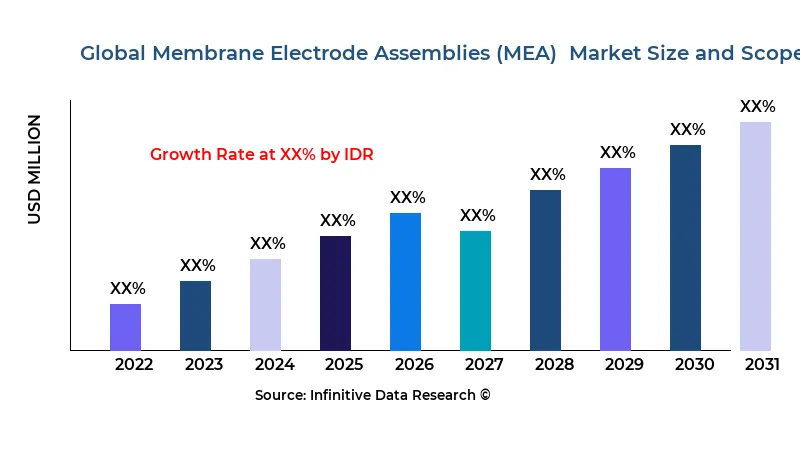
>>> Understand The Key Trends Shaping This Market:- Download PDF Sample
Membrane Electrode Assemblies Mea Market Growth Factors
A significant factor propelling the MEA market is the growing global demand for sustainable energy solutions. Governments and industries alike are prioritizing the transition to green technologies, leading to increased investments in fuel cell research and development. This trend is expected to continue as the need for environmentally friendly power sources intensifies.
Research and development efforts have played a pivotal role in advancing MEA technology. Continuous improvements in membrane efficiency, durability, and cost-effectiveness have led to broader adoption across various sectors, particularly in automotive and portable power applications. These technological enhancements are making fuel cell systems more reliable and efficient, thus contributing to market growth.
Government incentives and supportive policies have also been instrumental in fostering the adoption of fuel cell technologies. Tax credits, grants, and subsidies have lowered the barriers to entry for new market participants, while also encouraging established companies to invest in next-generation fuel cell systems. This supportive regulatory environment is critical in sustaining the long-term growth of the MEA market.
Finally, the increasing integration of MEAs in a wide range of applications—from transportation to stationary power generation—has diversified the revenue streams for industry players. This multi-sector adoption is further reinforced by consumer demand for clean energy solutions and by the need for decentralized power systems in remote areas, which together act as powerful growth drivers.
Market Analysis By Competitors
- Chemours (Dupont)
- Ballard
- Gore
- Johnson Matthey
- Basf
- Greenerity
- Wuhan WUT
- IRD Fuel Cells
- HyPlat
- Giner
By Product Type
- 3-layer MEA
- 5-layer MEA
- Others
By Application
- Hydrogen Fuel Cells
- Methanol Fuel Cells
- Others
>>> Understand The Key Trends Shaping This Market:- Understand The Key Trends Shaping This Market:-
Membrane Electrode Assemblies Mea Market Segment Analysis
When considering the distribution channel segment, the market is divided between direct sales channels and third-party distributors. Direct channels enable manufacturers to maintain closer control over the supply chain and customer relationships, ensuring that end-users receive the latest technological improvements promptly. Conversely, third-party distributors help in expanding market reach, especially in regions where direct market presence is limited. This dual approach ensures that MEA products can penetrate diverse markets effectively.
Regarding compatibility, MEA products are designed to integrate seamlessly with a variety of fuel cell systems, including proton exchange membrane (PEM) fuel cells and alkaline fuel cells. The versatility in design allows them to be adopted in different environments—from automotive applications to stationary power generators—thereby enhancing their market potential. This compatibility also means that manufacturers must maintain stringent quality and performance standards to cater to multiple industry requirements.
Price range segmentation in the MEA market reflects the broad spectrum of product offerings, from entry-level systems to premium, high-performance assemblies. Lower-priced options are often targeted at emerging markets and applications with lower power requirements, while high-end products cater to advanced applications in sectors like transportation and industrial power generation. This price differentiation allows companies to tailor their offerings to meet varied customer needs while sustaining healthy profit margins.
The product type segment further divides the market based on technological variations such as low-temperature versus high-temperature MEAs. Each category offers distinct performance benefits and is targeted toward specific applications. For instance, low-temperature MEAs are typically used in automotive and portable devices, whereas high-temperature variants are more common in industrial and stationary power applications. This segmentation encourages continuous innovation and specialized product development within the market.
| REPORT ATTRIBUTES | DETAILS |
|---|---|
| Study Period |
2019-2032 |
| Base Year |
2023 |
| Forecast Period |
2024-2032 |
| Historical Period |
2019-2022 |
| Unit |
Value (USD Billion) |
| Key Companies Profiled |
Chemours (Dupont), Ballard, Gore, Johnson Matthey, Basf, Greenerity, Wuhan WUT, IRD Fuel Cells, HyPlat, Giner |
| Segments Covered |
By Product |
| Customization Scope |
Free report customization (equivalent to up to 3 analyst working days) with purchase. Addition or alteration to country, regional and segment scope |
>>> Overview of Market Analysis:- Download PDF Sample
Membrane Electrode Assemblies Mea Market Regional Analysis
In North America, the MEA market has experienced significant growth driven by robust governmental support for clean energy technologies. The region benefits from a well-established infrastructure for research and development, combined with a proactive regulatory framework that promotes renewable energy adoption. These factors have made North America one of the leading regions in the deployment of advanced fuel cell systems.
Europe presents a dynamic landscape for MEAs, largely due to stringent environmental regulations and aggressive carbon reduction targets. European countries have embraced hydrogen as a viable alternative to conventional fuels, leading to a surge in investments in fuel cell technologies. The region’s emphasis on sustainability and technological innovation has fostered a competitive market environment with numerous research collaborations and pilot projects underway.
The Asia-Pacific region has emerged as a critical growth area for the MEA market. Rapid industrialization, coupled with a strong push towards renewable energy, has driven significant demand for efficient fuel cell systems. Countries such as Japan and South Korea are at the forefront of technological advancements in MEA design, while emerging markets in the region are gradually ramping up investments in fuel cell infrastructure, further expanding the market potential.
Other emerging regions, including parts of Latin America and the Middle East, are beginning to explore the potential of fuel cell technologies as part of their energy diversification strategies. While these markets are still in the early stages of adoption, increasing investments in renewable energy and favorable policy environments are expected to drive growth. This regional diversification is crucial for the long-term global expansion of the MEA market.
global Membrane Electrode Assemblies (MEA) market revenue (usd million) comparison by players 2024-2032
| Company/players | 2021 | 2022 | 2023 | 2024 | ... | (2032) |
|---|---|---|---|---|---|---|
| Chemours (Dupont) | XX | XX | XX | XX | XX | XX |
| Ballard | XX | XX | XX | XX | XX | XX |
| Gore | XX | XX | XX | XX | XX | XX |
| Johnson Matthey | XX | XX | XX | XX | XX | XX |
| Basf | XX | XX | XX | XX | XX | XX |
| Greenerity | XX | XX | XX | XX | XX | XX |
| Wuhan WUT | XX | XX | XX | XX | XX | XX |
| IRD Fuel Cells | XX | XX | XX | XX | XX | XX |
| HyPlat | XX | XX | XX | XX | XX | XX |
| Giner | XX | XX | XX | XX | XX | XX |
| Total | XX | XX | XX | XX | XX | XX |
global Membrane Electrode Assemblies (MEA) market revenue (usd million) comparison by product type 2024-2032
Product Type
2023
2024
...
2032
CAGR%(2024-32)
3-layer MEA
XX
XX
XX
XX
XX
5-layer MEA
XX
XX
XX
XX
XX
Others
XX
XX
XX
XX
XX
Total
XX
XX
XX
XX
XX
| Product Type | 2023 | 2024 | ... | 2032 | CAGR%(2024-32) |
|---|---|---|---|---|---|
| 3-layer MEA | XX | XX | XX | XX | XX |
| 5-layer MEA | XX | XX | XX | XX | XX |
| Others | XX | XX | XX | XX | XX |
| Total | XX | XX | XX | XX | XX |
global Membrane Electrode Assemblies (MEA) market revenue (usd million) comparison by application 2024-2032
Application
2023
2024
...
2032
CAGR%(2024-32)
Hydrogen Fuel Cells
XX
XX
XX
XX
XX
Methanol Fuel Cells
XX
XX
XX
XX
XX
Others
XX
XX
XX
XX
XX
Total
XX
XX
XX
XX
XX
| Application | 2023 | 2024 | ... | 2032 | CAGR%(2024-32) |
|---|---|---|---|---|---|
| Hydrogen Fuel Cells | XX | XX | XX | XX | XX |
| Methanol Fuel Cells | XX | XX | XX | XX | XX |
| Others | XX | XX | XX | XX | XX |
| Total | XX | XX | XX | XX | XX |
>>> Market Understand Through Graph And Chart:- Download PDF Sample
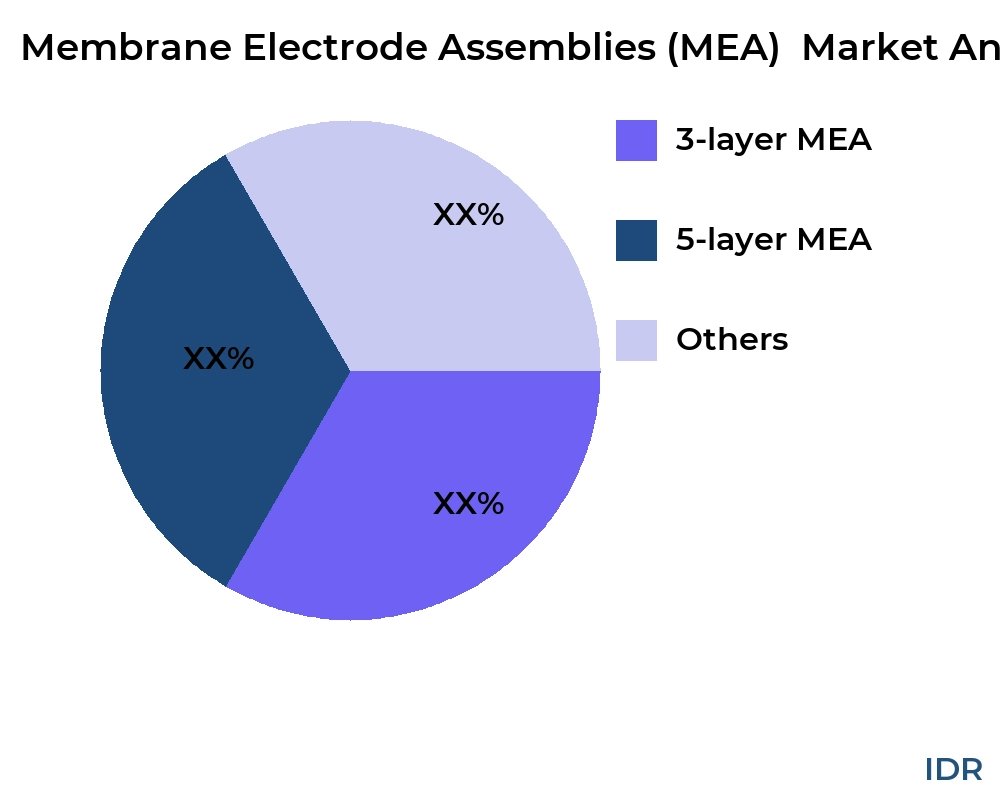
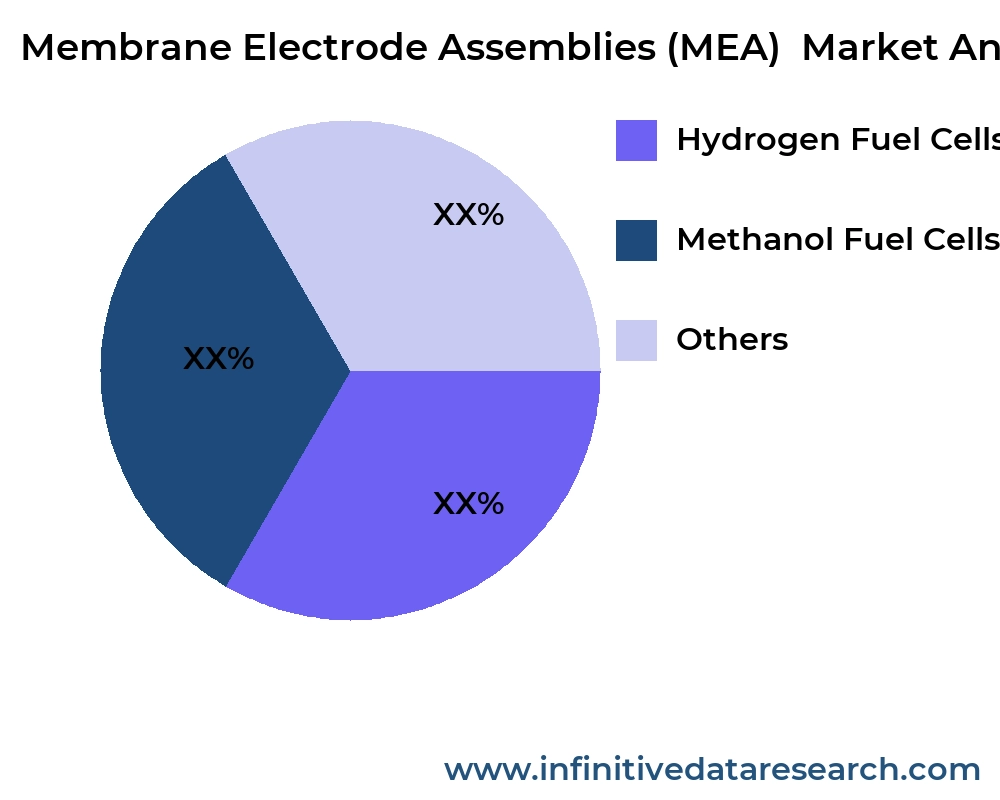
Membrane Electrode Assemblies Mea Market Competitive Insights
The competitive landscape in the MEA market is marked by the presence of several globally recognized players, each striving to differentiate themselves through innovation and technological leadership. These companies are continuously investing in research and development to enhance the efficiency, durability, and cost-effectiveness of their MEA products. The fierce competition has led to rapid technological advancements and a broader adoption of fuel cell systems across multiple sectors.
Companies are leveraging strategic partnerships, joint ventures, and acquisitions to expand their market presence and strengthen their product portfolios. These collaborations not only facilitate the sharing of technological expertise but also enable companies to access new markets and customer segments more effectively. The ongoing consolidation in the market is expected to further intensify competitive pressures while also driving innovation.
In response to evolving market demands, many firms are adopting customer-centric strategies, including tailored product solutions and enhanced after-sales support. This focus on customer engagement is complemented by substantial investments in digitalization and supply chain optimization, which help streamline operations and improve overall product delivery. The result is a more agile market where companies can quickly adapt to changing consumer needs and technological trends.
The global competition in the MEA market is also reflected in the aggressive pricing strategies and marketing initiatives undertaken by leading players. With a significant emphasis on sustainability and operational efficiency, companies are continually refining their processes to reduce production costs while maintaining high quality. This dual focus on cost management and innovation is crucial in securing long-term market leadership in an increasingly competitive environment.
Membrane Electrode Assemblies Mea Market Competitors
USA
- Ballard Power Systems
- Plug Power Inc.
- FuelCell Energy Inc.
- Nuvera Fuel Cells
- Hydrogenics America
Germany
- SFC Energy AG
- Bosch Fuel Cell Systems
- Daimler Fuel Cells
- Proton Motor Power Systems
- ThyssenKrupp Energy
Japan
- Toyota Tsusho Fuel Cells
- Mitsubishi Fuel Cell Systems
- Panasonic Energy Solutions
- Hitachi Fuel Technologies
- Toshiba Energy Systems
South Korea
- Hyundai Fuel Cell Division
- Doosan Fuel Cell Systems
- SK E&S Fuel Technologies
- LG Hydrogen Solutions
- POSCO Energy
China
- Shanghai Fuel Cell Co.
- China Hydrogen Energy
- Tianjin Fuel Cell Tech
- Sino Energy Systems
- Beijing Fuel Cell Corporation
France
- Air Liquide Hydrogen Systems
- Faurecia Fuel Cells
- Engie Fuel Cell Solutions
- Alstom Energy
- Plastic Omnium Fuel Cells
Membrane Electrode Assemblies Mea Market Top Competitors
Ballard Power Systems stands out as a leading pioneer in fuel cell technology, holding a strong market position due to its long-standing expertise and continuous innovation in membrane electrode assembly design. The company has established itself as a market leader through substantial investments in R&D and strategic partnerships that have enhanced its product performance and market reach.
Plug Power Inc. has rapidly emerged as a key competitor in the MEA market with its aggressive expansion strategy and a focus on integrating fuel cell solutions across diverse industries. Its comprehensive product portfolio and robust supply chain management have enabled it to secure a significant share of the growing market, particularly in North America.
FuelCell Energy Inc. is recognized for its reliable and scalable fuel cell systems that incorporate advanced MEA technology. With a focus on long-term performance and cost efficiency, the company has built a reputation for delivering high-quality products, making it a trusted name among both industrial and commercial customers.
Hyundai Fuel Cell Division has become a major player in the MEA market, driven by its strong commitment to innovation and sustainable mobility solutions. Its integration of cutting-edge MEA technology into automotive and stationary power systems has not only boosted its market presence but also cemented its position as a leader in Asia.
Air Liquide Hydrogen Systems leverages its extensive experience in industrial gas and energy solutions to provide state-of-the-art MEA products. The company’s strategic focus on quality and operational excellence has enabled it to capture a significant market share in Europe, where environmental regulations continue to drive demand for clean energy technologies.
Toyota Tsusho Fuel Cells is noted for its commitment to advancing fuel cell technology through continuous innovation and strategic collaborations. By focusing on both performance and sustainability, the company has carved out a niche in high-performance MEA solutions for automotive and industrial applications.
SFC Energy AG continues to drive the market forward with its focus on high-efficiency MEAs designed for a variety of applications. The company’s reputation for reliability and technological advancement has solidified its position as a preferred supplier in both mature and emerging markets.
Bosch Fuel Cell Systems has diversified its portfolio by integrating MEA technology into a wide range of fuel cell applications. Its comprehensive approach to product development, from design to after-sales support, has helped Bosch maintain a competitive edge in the rapidly evolving clean energy landscape.
Doosan Fuel Cell Systems is recognized for its innovative approaches to enhancing fuel cell performance, with a particular focus on operational reliability and cost reduction. The company’s commitment to sustainability and continuous improvement has positioned it well within the global market.
Shanghai Fuel Cell Co. represents a dynamic force in the Asian market, combining local market insights with advanced MEA technology. Its agile business model and strong focus on R&D have allowed it to quickly gain market traction, making it one of the top competitors in the region.
The report provides a detailed analysis of the Membrane Electrode Assemblies (MEA) market across various regions, highlighting the unique market dynamics and growth opportunities in each region.
- US
- Canada
- Mexico
- UK
- Germany
- France
- Italy
- Russia
- Spain
- Switzerland
- Austria
- Belgium
- Rest of Europe
- China
- Japan
- South Korea
- Indonesia
- Vietnam
- Philippines
- Australia
- Thailand
- Singapore
- Rest of APAC
- UAE
- Saudi Arabia
- Egypt
- South Africa
- Israel
- Rest of MEA
- Brazil
- Argentina
- Rest of Latin America
>>> Need A Different Region Or Segment? Download PDF Sample
Key Takeaways
- The global Membrane Electrode Assemblies (MEA) market is expected to grow significantly from 2024 to 2032, driven by technological advancements, increasing demand, and government investments in urbanization.
- The market is characterized by a diverse range of manufacturers, product types, and applications, catering to different consumer needs and preferences.
- Regional insights highlight the unique market dynamics and growth opportunities in various regions, including North America, Europe, Asia-Pacific, Latin America, and the Middle East & Africa.
- The competitive landscape features key players who have created a dynamic and diverse market environment through collaborations, mergers and acquisitions, and innovative product developments.
- Market trends such as technological advancements, sustainability, customization, and digital transformation are shaping the growth and development of the Membrane Electrode Assemblies (MEA) market.
- Despite the positive outlook, the market faces challenges such as regulatory compliance, high initial investment costs, and economic uncertainties.
- The report provides comprehensive coverage of market size, market share, growth factors, and strategic insights to help businesses navigate the dynamic Membrane Electrode Assemblies (MEA) market and achieve long-term success.
By leveraging the information provided in this report, businesses can develop effective strategies, address market challenges, and capitalize on growth opportunities to ensure sustainable growth and long-term success in the global Membrane Electrode Assemblies (MEA) market.
- Introduction
- Objectives of the Study
- Market Definition
- Research Scope
- Currency
- Key Target Audience
- Research Methodology and Assumptions
- Executive Summary
- Premium Insights
- Porter’s Five Forces Analysis
- Value Chain Analysis
- Top Investment Pockets
- Industry Trends
- Market Dynamics
- Market Evaluation
- Drivers
- Restraints
- Opportunities
- Challenges
- Global Membrane Electrode Assemblies (MEA) Market Analysis and Projection, By Companies
- Segment Overview
- Chemours (Dupont)
- Ballard
- Gore
- Johnson Matthey
- Basf
- Greenerity
- Wuhan WUT
- IRD Fuel Cells
- HyPlat
- Giner
- Global Membrane Electrode Assemblies (MEA) Market Analysis and Projection, By Type
- Segment Overview
- 3-layer MEA
- 5-layer MEA
- Others
- Global Membrane Electrode Assemblies (MEA) Market Analysis and Projection, By Application
- Segment Overview
- Hydrogen Fuel Cells
- Methanol Fuel Cells
- Others
- Global Membrane Electrode Assemblies (MEA) Market Analysis and Projection, By Regional Analysis
- North America
- US
- Canada
- Mexico
- Europe
- UK
- Germany
- France
- Italy
- Russia
- Spain
- Switzerland
- Austria
- Belgium
- Rest of Europe
- Asia Pacific
- China
- Japan
- South Korea
- Indonesia
- Vietnam
- Philippines
- Australia
- Thailand
- Singapore
- Rest of APAC
- Middle East
- UAE
- Saudi Arabia
- Egypt
- South Africa
- Israel
- Rest of MEA
- Latin America
- Brazil
- Argentina
- Rest of Latin America
- Global Membrane Electrode Assemblies (MEA) Market-Competitive Landscape
- Overview
- Market Share of Key Players in the Membrane Electrode Assemblies (MEA) Market
- Global Company Market Share
- North America Company Market Share
- Europe Company Market Share
- APAC Company Market Share
- Competitive Situations and Trends
- Coverage Launches and Developments
- Partnerships, Collaborations, and Agreements
- Mergers & Acquisitions
- Expansions
- Company Profiles
- Chemours (Dupont)
- Business Overview
- Company Snapshot
- Company Market Share Analysis
- Company Coverage Portfolio
- Recent Developments
- SWOT Analysis
- Ballard
- Business Overview
- Company Snapshot
- Company Market Share Analysis
- Company Coverage Portfolio
- Recent Developments
- SWOT Analysis
- Gore
- Business Overview
- Company Snapshot
- Company Market Share Analysis
- Company Coverage Portfolio
- Recent Developments
- SWOT Analysis
- Johnson Matthey
- Business Overview
- Company Snapshot
- Company Market Share Analysis
- Company Coverage Portfolio
- Recent Developments
- SWOT Analysis
- Basf
- Business Overview
- Company Snapshot
- Company Market Share Analysis
- Company Coverage Portfolio
- Recent Developments
- SWOT Analysis
- Greenerity
- Business Overview
- Company Snapshot
- Company Market Share Analysis
- Company Coverage Portfolio
- Recent Developments
- SWOT Analysis
- Wuhan WUT
- Business Overview
- Company Snapshot
- Company Market Share Analysis
- Company Coverage Portfolio
- Recent Developments
- SWOT Analysis
- IRD Fuel Cells
- Business Overview
- Company Snapshot
- Company Market Share Analysis
- Company Coverage Portfolio
- Recent Developments
- SWOT Analysis
- HyPlat
- Business Overview
- Company Snapshot
- Company Market Share Analysis
- Company Coverage Portfolio
- Recent Developments
- SWOT Analysis
- Giner
- Business Overview
- Company Snapshot
- Company Market Share Analysis
- Company Coverage Portfolio
- Recent Developments
- SWOT Analysis
List of Table
- Drivers of Global Membrane Electrode Assemblies (MEA) Market: Impact Analysis
- Restraints of Global Membrane Electrode Assemblies (MEA) Market: Impact Analysis
- Global Membrane Electrode Assemblies (MEA) Market, By Technology, 2023-2032(USD Billion)
- global 3-layer MEA, Membrane Electrode Assemblies (MEA) Market, By Region, 2023-2032(USD Billion)
- global 5-layer MEA, Membrane Electrode Assemblies (MEA) Market, By Region, 2023-2032(USD Billion)
- global Others, Membrane Electrode Assemblies (MEA) Market, By Region, 2023-2032(USD Billion)
- global Hydrogen Fuel Cells, Membrane Electrode Assemblies (MEA) Market, By Region, 2023-2032(USD Billion)
- global Methanol Fuel Cells, Membrane Electrode Assemblies (MEA) Market, By Region, 2023-2032(USD Billion)
- global Others, Membrane Electrode Assemblies (MEA) Market, By Region, 2023-2032(USD Billion)
List of Figures
- Global Membrane Electrode Assemblies (MEA) Market Segmentation
- Membrane Electrode Assemblies (MEA) Market: Research Methodology
- Market Size Estimation Methodology: Bottom-Up Approach
- Market Size Estimation Methodology: Top-down Approach
- Data Triangulation
- Porter’s Five Forces Analysis
- Value Chain Analysis
- Top investment pocket in the Membrane Electrode Assemblies (MEA) Market
- Top Winning Strategies, 2023-2032
- Top Winning Strategies, By Development, 2023-2032(%)
- Top Winning Strategies, By Company, 2023-2032
- Moderate Bargaining power of Buyers
- Moderate Bargaining power of Suppliers
- Moderate Bargaining power of New Entrants
- Low threat of Substitution
- High Competitive Rivalry
- Restraint and Drivers: Membrane Electrode Assemblies (MEA) Market
- Membrane Electrode Assemblies (MEA) Market Segmentation, By Technology
- Membrane Electrode Assemblies (MEA) Market For Live Attenuated, By Region, 2023-2033 ($ Billion)
- Global Membrane Electrode Assemblies (MEA) Market, By Technology, 2023-2032(USD Billion)
- global 3-layer MEA, Membrane Electrode Assemblies (MEA) Market, By Region, 2023-2032(USD Billion)
- global 5-layer MEA, Membrane Electrode Assemblies (MEA) Market, By Region, 2023-2032(USD Billion)
- global Others, Membrane Electrode Assemblies (MEA) Market, By Region, 2023-2032(USD Billion)
- global Hydrogen Fuel Cells, Membrane Electrode Assemblies (MEA) Market, By Region, 2023-2032(USD Billion)
- global Methanol Fuel Cells, Membrane Electrode Assemblies (MEA) Market, By Region, 2023-2032(USD Billion)
- global Others, Membrane Electrode Assemblies (MEA) Market, By Region, 2023-2032(USD Billion)
- Chemours (Dupont): Net Sales, 2023-2033 ($ Billion)
- Chemours (Dupont): Revenue Share, By Segment, 2023 (%)
- Chemours (Dupont): Revenue Share, By Region, 2023 (%)
- Ballard: Net Sales, 2023-2033 ($ Billion)
- Ballard: Revenue Share, By Segment, 2023 (%)
- Ballard: Revenue Share, By Region, 2023 (%)
- Gore: Net Sales, 2023-2033 ($ Billion)
- Gore: Revenue Share, By Segment, 2023 (%)
- Gore: Revenue Share, By Region, 2023 (%)
- Johnson Matthey: Net Sales, 2023-2033 ($ Billion)
- Johnson Matthey: Revenue Share, By Segment, 2023 (%)
- Johnson Matthey: Revenue Share, By Region, 2023 (%)
- Basf: Net Sales, 2023-2033 ($ Billion)
- Basf: Revenue Share, By Segment, 2023 (%)
- Basf: Revenue Share, By Region, 2023 (%)
- Greenerity: Net Sales, 2023-2033 ($ Billion)
- Greenerity: Revenue Share, By Segment, 2023 (%)
- Greenerity: Revenue Share, By Region, 2023 (%)
- Wuhan WUT: Net Sales, 2023-2033 ($ Billion)
- Wuhan WUT: Revenue Share, By Segment, 2023 (%)
- Wuhan WUT: Revenue Share, By Region, 2023 (%)
- IRD Fuel Cells: Net Sales, 2023-2033 ($ Billion)
- IRD Fuel Cells: Revenue Share, By Segment, 2023 (%)
- IRD Fuel Cells: Revenue Share, By Region, 2023 (%)
- HyPlat: Net Sales, 2023-2033 ($ Billion)
- HyPlat: Revenue Share, By Segment, 2023 (%)
- HyPlat: Revenue Share, By Region, 2023 (%)
- Giner: Net Sales, 2023-2033 ($ Billion)
- Giner: Revenue Share, By Segment, 2023 (%)
- Giner: Revenue Share, By Region, 2023 (%)
Infinitive Data Research provides comprehensive market research, offering in-depth market analysis to help companies understand their target market and industry competition. This research predicts the market acceptance of your brand and products, ensuring informed decision-making for business success.
Competitor Analysis in the Membrane Electrode Assemblies (MEA) Industry
Conducting a competitor analysis involves identifying competitors within the Membrane Electrode Assemblies (MEA) industry and studying their various marketing strategies. This comparative data allows you to assess your company's strengths and weaknesses relative to competitors, providing insights to enhance your market position.
Importance of Continuous Market Research
Consistently conducting market research is essential for minimizing risk at every stage of business operations. Membrane Electrode Assemblies (MEA) market research enables you to collect qualitative and quantitative data, which, when properly analyzed, leads to wise decisions that align with user and customer needs. Below are some crucial lessons learned through the Membrane Electrode Assemblies (MEA) market research process:

Key Dimensions of Membrane Electrode Assemblies (MEA) Market Analysis
- Trend and Pattern Identification: Analyzing data to spot market trends and patterns.
- Pricing Analysis: Assessing keyword pricing strategies.
- Actionable Insights: Implementing insights derived from data analysis.
- Market Potential: Evaluating the potential of the Membrane Electrode Assemblies (MEA) market.
- Competitor Analysis: Studying competitors' strategies and performance.
- Location Analysis: Assessing optimal locations for market penetration.
- Distribution Channels Analysis: Evaluating the effectiveness of distribution channels.
- Market Size and Growth Rate: Measuring market size and growth potential.
- Market Profitability: Assessing profitability prospects.
- Key Success Factors: Identifying critical factors for success.
- Cost Structure: Understanding the cost structure within the Membrane Electrode Assemblies (MEA) industry.
Target Audience for the Report
This report is valuable for a diverse audience, including:
- Membrane Electrode Assemblies (MEA) Market Manufacturers: To understand market dynamics and enhance production strategies.
- Investors and Financing Companies: To assess investment opportunities and risks.
- Membrane Electrode Assemblies (MEA) Market Suppliers: To identify market demands and supply chain efficiencies.
Necessity of the Report
Making Crucial Business Decisions
Understanding the Membrane Electrode Assemblies (MEA) market, competition, and industry landscape is vital for making informed business decisions. Without current and relevant market research, decisions may be based on outdated or irrelevant information, potentially harming the business.
Securing Investment Funds
Attracting investors requires demonstrating thorough market research. Investors need assurance that you understand the sector, current and potential competition, and whether your idea addresses a market need.
Identifying New Business Opportunities
Membrane Electrode Assemblies (MEA) market research goes beyond understanding trends and consumer behavior. It identifies new revenue streams and opportunities for business pivots. These insights can lead to strategic changes in the business model, promoting growth and adapting to market challenges.
Avoiding Business Failures
Market research also plays a crucial role in risk mitigation. It can reveal when not to pursue certain actions, saving the company from potential losses in revenue, brand image, and more. This proactive approach is often overlooked but is essential for long-term success.
Conclusion
Infinitive Data Research's comprehensive Membrane Electrode Assemblies (MEA) market research provides critical insights for making solid business decisions, securing investments, identifying new opportunities, and avoiding potential failures. Understanding market dynamics through continuous research ensures your company remains competitive and thrives in the Membrane Electrode Assemblies (MEA) industry.

